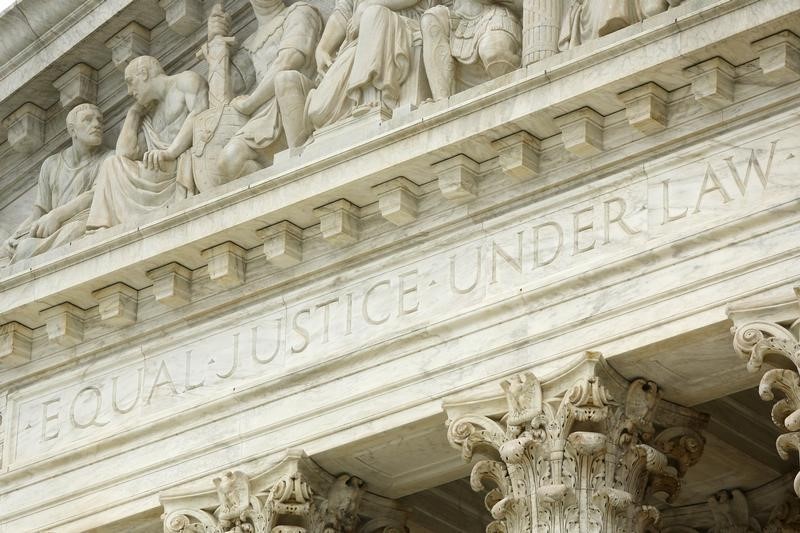By Lawrence Hurley
WASHINGTON (Reuters) - The U.S. Supreme Court on Wednesday made it easier for people to sue the federal government by ruling in favor of plaintiffs in two separate cases including one involving a Hong Kong woman who was strip-searched while in immigration detention in Oregon.
On a 5-4 vote deciding both cases, the justices ruled that court deadlines for filing certain lawsuits can be extended if plaintiffs have good reasons for the delay. President Barack Obama's administration had asked the court to impose a strict deadline for such lawsuits under a law called the Federal Tort Claims Act.
The court's four liberals were joined in the majority by conservative Justice Anthony Kennedy, who often casts the deciding vote in close cases.
One case involved Kwai Fun Wong, who was strip-searched while held in an Oregon immigration detention center in 1999. The issue in her case was whether she had waited too long before suing the government for monetary damages over her treatment.
Wong, a minister of a religious organization called the Wu-Wei Tien Tao Association, was detained in Oregon in 1999 after the U.S. government concluded she had entered the country illegally.
During her confinement at the Multnomah County jail in Portland, she was strip-searched and her request for vegetarian food was rejected by authorities. Wong, who has British citizenship, was later deported and has not lived in the United States since.
The other case concerned a lawsuit filed on behalf of the son of Anthony Booth, a man killed in a 2005 car accident on a federal highway in Arizona. His family said the median barrier was defective and contributed to Booth's death.
The Federal Tort Claims Act, which outlines in what circumstances the federal government can be sued, says that people must make a claim with a federal agency within two years and then file a lawsuit within six months of the agency making a decision.
